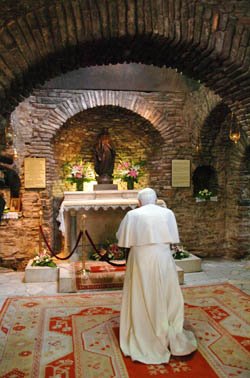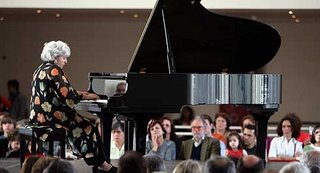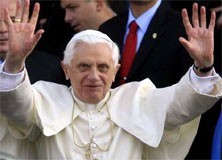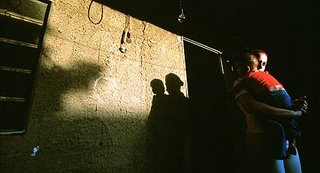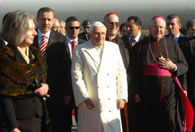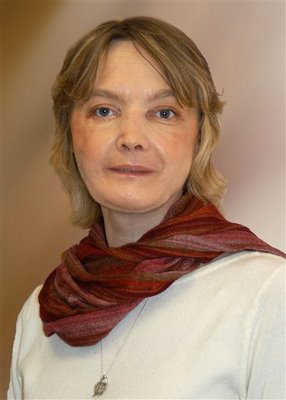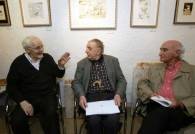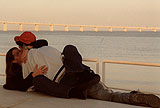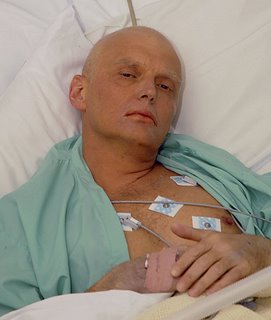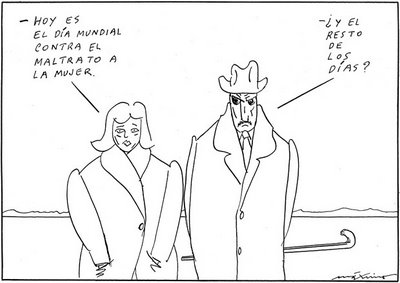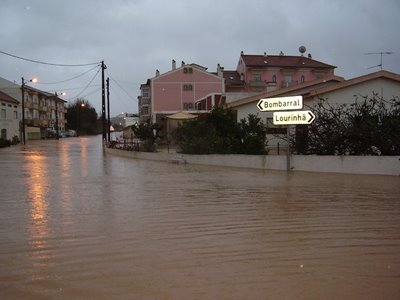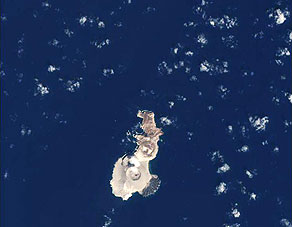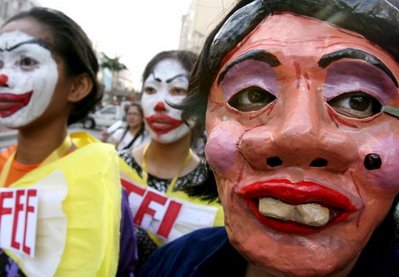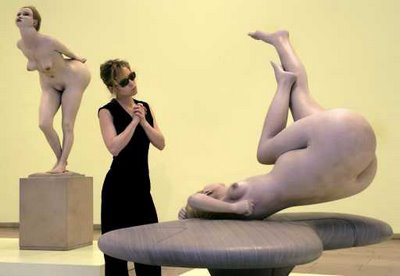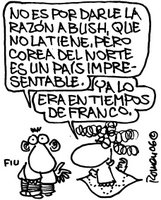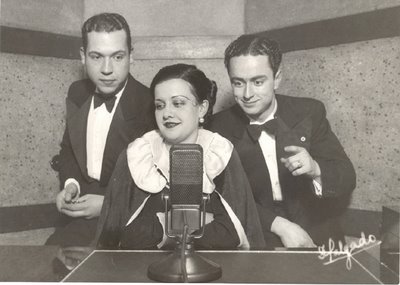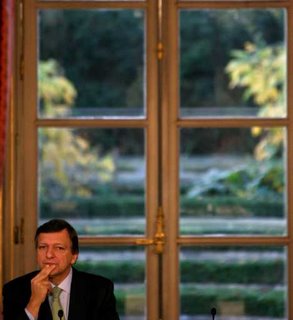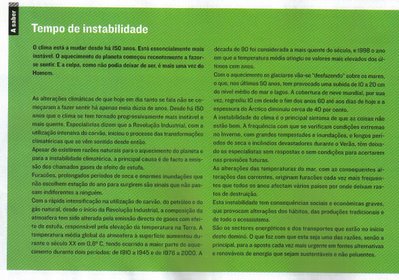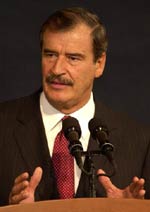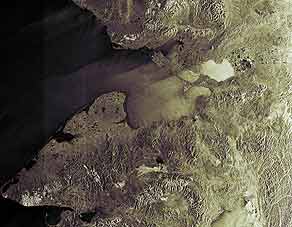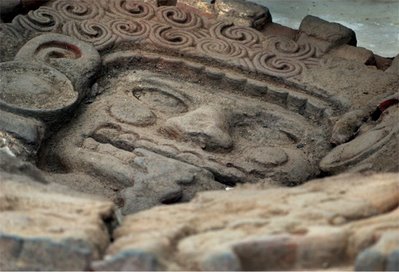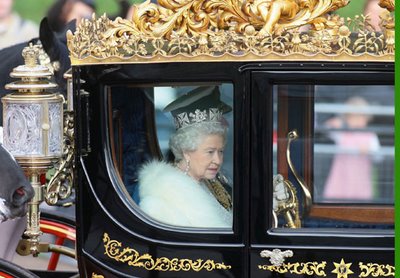
CONFERÊNCIA GULBENKIAN > QUE VALORES PARA ESTE TEMPO?
1
Do We Need Truth?
Jacques Bouveresse
1.What would we be and could we do without the help of the false?
Peter Hacker, in Appearance and Reality, says of truth that it generally has the dignity, but not the charm. We are much more easily seduced by the illusions of philosophy than by the humble truths it is able to discover and communicate. That is, it seems, true not only in the case of philosophy, but quite generally. It could be said also of truth that it usually has the respect and the praises, but not the favour and the honours. It is not by truth that we are the most spontaneously attracted and captivated, and it is not truth that is most beloved and believed. With falsity, the exact opposite seems to be the case. It has in principle the disgrace, but that does apparently not prevent it from having, nevertheless, most of the time the success and the power. Officially, it is depreciated and even discredited, but it has the advantage of being generally much more attracting than truth and to obtain more easily acceptance.
There are, therefore, good reasons to think that, of the two notions, the one that is first and fundamental ist probably not truth, but falsity. That seems to be what Paul Valéry wanted to suggest when he said:
« It is a kind of absolute law that everywhere, in all places, in every period of the civilisation, in every belief, with the help of any discipline whatsoever and in any respects - the false supports the true, the true gives to itself the false as ancestor, as cause, as author, as origin and as end, without exception nor remedy - and the true begets the false by which it demands to be itself begotten. Every antiquity, every causality, every principle of the things, are fabulous inventions and obey to the simple laws.
What would we be without the help of what does not exist? Not much, and our minds, having almost no work to do, would languish if fables, msunderstandings, abstractions, beliefs and monsters, hypotheses and so-called problems of metaphysics were not there to populate with images devoid of any object our natural depths and darkness1. »
Falsity has, it seems, over truth, the same kind of advantage as stupidity over intellligence. Musil, in The Man without Qualities, asks the following ironical question concerning stupidity: if it did not manifest all the appearances of intelligence, could it continue to exist? « If stupidity, seen from the inside, were not so hard to tell apart from talent, if, seen from the outside, it did not have all the appearances of progress, genius, hope and improvement, nobody would like to be stupid and there would be no stupidity. It would, at least, be easy to fight it. Unfortunately, however, it has something extraordinarily natural and convincing2. » It is, obviously, possible to ask the same sort of question about falsity: if it did not, in most cases, resemble so much truth and be so hard to tell apart from it, how could it be so easily and stubbornly believed? It too can have, like stupidity, something extraordinarily natural and convincing which makes it particularly difficult to fight.
The complicated and painful problem one has to face here is that for being perceived and acknowledged as true it is by no means necessary to be such, and that the fact of being true may even, on that point, constitute a serious drawback: the best way to be accepted as true is not necessarily the one consisting in being, in effect, true. It is a thing which, for Nietzsche, tends to become still more striking in times like the one we are now
CONFERÊNCIA GULBENKIAN > QUE VALORES PARA ESTE TEMPO?
2
living in, which is the time of masses and theater. Musil quotes a passage of Der Fall Wagner, where it is said that: « […]In cultures of decline, […] in all situations in which the decision falls into the hands of the masses, authenticity becomes superfluous, disadvantageous, retrograde. Only the actor can still raise the great enthousiasm. In consequence, the heyday is coming now for the actor3. » Nietzsche, on that question, refers precisely to the saying of an actor, Talma, which he takes as an exact symbol of our epoch:
« One is actor, by the fact that he has an insight (Einsicht) in advance with respect to the rest of mankind: what is supposed to act as true must not be true. The sentence is stated by Talma: it contains all the psychology of the actor. It contains - let’s have no doubts about that! - also his moral. Wagner’s music is never true.
But it is taken to be such; and in that way things are put in order4. »
We had better, it seems to me, leave entirely to Nietzsche the responsibility for the distinction he is trying to make between a music which can be called "true" and another one which has to be rejected as "false". But we can retain of what he says that we might, in effect, have reached a stage where everyone has more or less assimilated the actor’s principle, which states that, if we want a certain thing to make the impression of being true and be accepted as such, it is not only not necessary for it be true, but it can even be better not to be such.
At first sight, science rests on a an exactly opposite principle: the things it affirms are supposed to be true and what speaks for them is essentially the fact that, at least in an important number of cases, they are true ; but it is far from being the case that they, generally, give the impression to be such and they even frequently contradict beliefs which belong to the category of those to which we cling most strongly and truths which apparently are of the most unshakeable kind. Nietzsche, nevertheless, considers as quite legitimate and even indispensable to ask the question whether science itself could not be the genuine daughter of an epoch in which, in questions of truth and falsity as in everything else, what matters is not what a thing is, but what it succeeds in being taken for. In other words, even if science is supposed to represent the domain par excellence in which one succeeds in arriving at propositions which deserve to be called "true", it is not impossible that, when they are considered from a certain point of view, the truths of science appear as being also nothing more than errors which it succeeds in presenting and getting accepted as true.
Nietzsche says that « the truthful man (der Wahrhaftige) […], such as he is presupposed by the belief in science, affirms […] another world than the one of life, nature and history; and in as far as he affirms an "other world", should he not, then, precisely by the same token negate its counterpart, this world, our world?" (Die fröhliche Wissenschaft, § 344, p. 275) In other words, the will of truth, which is at the foundation of science, leads to the construction of a world which is supposed to be the true one, the one which can be found behind the appearances and constitutes the origin, the cause and the explanation of these. But it could turn out, precisely, that it is that world that has the least of truth and reality, that it has anyway much less of them than the world of phenomena, in other words that it is a false one and that the lie it is has nonetheless succeeded in imposing itself, like many others, essentially because it proved to be very useful and even, after a certain time, indispensable..
2. Can one want the true and why is it wanted?
Even if falsity and error are, as Valéry says, ancestors of truth and knowledge, they are ancestors which, for evident reasons, they do not like much to admit and that they have even, generally, a very strong propensity to deny with a certain solemnity. Philosophers, on the whole, have been rather inclined to suppose that truth is a thing that can be wanted for itself and searched for itself, and to speak of a passion for knowledge, one of the most remarkable results of which has been science, as we know it. That is a way of considering the situation which has been radically contested by Nietzsche, who maintains that science can very well have grown up and become adult without that supposed passion for knowledge: « The good belief in science, the prejudice which is favourable to it, by which our States are now directed (earlier it was even the Church that was), rests finally on the fact that that
C O N F E R Ê N C I A G U L B E N K I A N > Q U E V A L O R E S P A R A E S T E T E M P O ? 3
propensity and that impulse have so rarely shown themselves in it and that science is valuable not as passion, but as condition and "Ethos"» (Die fröhliche Wissenschaft, § 123, p. 164). That knowledge wants to be more than a means and to constitute itself as the object of a passion is, according to Nietzsche, a novelty: in the Antiquity, even in its most ardent defenders, the most beautiful praise which could be delivered to science was the one which consisted in presenting it not as an end, and still less as the supreme end, but as the best means to reach virtue.
Nietzsche claims that, in the human being, in contrast with what happens in the animals, who have much better weapons in the struggle for live, the art of hiding and cunning, which is the most appropriate means of conservation for the weakest beings, has reached the heights. But it is precisely in hiding and cunning that the intellect develops its main forces, so that: « There is almost nothing more incomprehensible than the way an honest and pure impulse to truth (Trieb zur Wahrheit) could appear in human beings. They are deeply immersed in illusions and dream-like images, there eye can only slip around them on the surface of the things and they see "forms", their sensation leads nowhere to the truth, but satisfies itself with the reception of excitations and the playing so to speak of a groping game on the back of the things5. » If one is willing to consider the situation in that way, he cannot fail to conclude that science, contrary to what its defenders believe, does not constitute the best and most reliable way leading to truth, but rather a way of moving back at the sight of the truth and shrinking from it, at least from the superior kind of it, the one with respect to which the truth that the scientists call "objective" is, at best, only a subordinate form, in reality much closer to useful lie tnan to genuine truth.
The irony of the situation consists precisely in the fact that, in order to justify the primacy of truth and kowledge over falsity and ignorance, the only possible solution was, once more, to draw on the false. Those who tried to justify the privilege attributed to science have indeed, to that end, relied on three typical mistakes:
« In the last centuries, science has been favoured, partly because of the hope, with it and through it, to reach a better understanding of the goodness and wisdom of God - the principal motive in the soul of the great english men (like Newton) -, partly because of the belief in the absolute usefulness of knowledge, particularly in the innermost link between moral, science and happiness - the principal motive in the soul of the great french men (like Voltaire) -, partly because of the belief to have and to love in science something disinterested, harmless, self-sufficient, truly innocent, in which the bad impulses of man have absolutely no part - the principal motive in the soul of Spinoza, who, as a knowing being, felt divine - therefore, with reasons which amounted to three errors" (Die fröhliche Wissenschaft, § 37, p. 83).
We might, to simplify and without worrying too much about historical exactness, call the three errors to which Nietzsche refers, the theological conception, the conception of the Enlightenment, and the spinozistic conception. Musil, who has been influenced to a considerable extent by Nietzsche, rejected, as he did, the first and the third conceptions, but he maintained that the second one should not be taken, even now, as a complete mistake: contrary to a tendency that was, in his time, very strong and has, it seems, become more and more dominant, he did not see the ideas and the ideals of the Enlightenment as being really outdated and, in spite of Nietzsche’s radical criticism, he was still less ready to accept the now so popular postmodernist idea that perhaps we had now better simply renounce using notions like "truth" or "objectivity" at all and try to replace them by other ones. What has happened, according to him, is not that the european humanity has realized at a certain moment that they rested on a fundamental mistake or constituted themselves a mistake of that kind, but that we have simply renounced too quickly and lost, at the first serious difficulty and failure, heart, determination and enthousiasm.
Musil accepts completely the idea that science is not the product of disinterested contemplation, but of a a will and an ethos or an habitus of a certain kind. But he does not share the depreciation of the theoretical man that results, for Nietzsche, from that observation; and he maintains that the ethos that gave birth to modern science has kept until today an exemplary character, from which literature itself could learn much more than it generally does. One
C O N F E R Ê N C I A G U L B E N K I A N > Q U E V A L O R E S P A R A E S T E T E M P O ? 4
could even say that it is an example from which we have serious reasons to continue to draw our inspiration, for none of the rivals that are usually opposed to it is in the least bit convincing and can seriously pretend to be a solution. Musil considers that, generally, the substitues that have beeen proposed until now to replace rationality and science are very poor and completely insufficient. "I can understand, he says, that what they [those who complain about the damages caused by Enlightenment, rationality and science] like the least is first mathematics, then exactness, and finally intelligence. But when they oppose to that vitality, life, intuition, blood, race, instinct, myth, as it is already since many years a literary fashion, these are miserable surrogates. Because a feeling that does not include in itself the reference to truth and reality remains as thin as an undeveloped child or becomes as thick as soap bubble » (MoE 5, p. 1919-1920).
Musil says of his hero Anders, the future Ulrich of The Man without Qualities that he does not accept the nietzschean idea that science is only a kind of subtle self-defence against truth, a way out, and that the victory of the theoretical man has to be understood as a typical sign of decline: "There A[nders] parts company with Nietzsche, because he has a passion for the theoretical man. Otherwise one comes indeed to a silly idolatry of life; but Anders himself run aground in the sand with his final ataraxia of the theoretical man" (MoE 5, p. 1778-1779).
Musil’s main target was the so-called "philosophy of life" and the way it was used in literature and art. That is, of course, no longer exactly our problem. But that does not dispense us with the need of an answer to the kind of questions he asked concerning the substitutes that are currently proposed to replace the notions we, supposedly, can now very well and probably must get rid of. If we are sensitive to the urge of some postmodernist thinkers concerning the outmoded character of notions like "truth" or "objectivity", there will inevitably be the question of what things such as an after-truth science or an after-truth democracy will be like. And the kind of answer which is given to that, when there is one, is, to say the least, generally much too vague and rhetorical to be quite reassuring and convincing.
Musil did not accept the subordination of all things, in particular of the interest for truth, to the interest of truth itself for life. He rejected, in consequence, the primacy of practical over theoretical truth, or of a so-called "truth of life" over truth of any other kind, which was supposed to be derivable from Nietzsche’s philosophy; but he was quite conscious of the impossibility to continue to ignore a very important nietzschean question, namely: "How can theoretical truth, especially if we take seriously the form which has been given to it by the sciences in their present state, be made practical?"
3. Science, evil and maliciousness
According to Nietzsche, truth has manifested itself only very late, and as "the least strong of the forms of knowledge" (Die fröhliche Wissenschaft, § 110, p. 152). The reason of that is that it seems in contradiction with life, since the organism can apparently subsist only on the basis of some useful and even essential errors, that Nietzsche considers as fundamental, particularly those of sensible perception. The search for truth was, therefore, seriously disabled by the fact that error seems, generally, much more useful than truth, and that, as Nietzsche says, "the force of knowledges does not lie in their degree of truth, but in their age, the way they have been integraded to the body, their character of conditions of life" . (ibid., p. 153) Whenever life and knowledge have given the impression to come into conflict with each other, there was never a serious confrontation, it was always life, and consequently natural error that won. But knowledge and striving for truth did nevertheless become themselves also a need that has been integrated to the system of human needs in general, a situation that has created finally a problem which Nietzsche considers as absolutely decisive:
« Knowledge has become […] itself a piece of life and, as life, a power that grows without interruption; until the time when finally the knowledges and the very ancient basic errors of which we have spoken have bumped into each other, both of them as life, both of them as power, both of them in the same man. The thinker, that is now the man in whom the impulse to truth and those errors that conserve life
C O N F E R Ê N C I A G U L B E N K I A N > Q U E V A L O R E S P A R A E S T E T E M P O ? 5
fight their first battle, after truth has demonstrated that it too was a power that conserves life. With respect to the importance of that battle, all the rest is indifferent: the ultimate question concerning the condition of life is asked here, and the first effort is made to answer it by experiment. To what extent does truth suffer embodiment (Einverleibung)? - That is the very question, that is the very experiment" (ibid., p. 154-155).
It is certainly not necessary to insist on the degree to which that nietzschean question: "Is truth compatible with life? Or is it intrinsically impossible to live in accordance with truth, and should we not, therefore, be prepared to admit that the passion for truth and knowledge could, in the end, turn out to be fatal to life?" is also a musilian one. If the passion for truth, as Nietzsche seems to be ready to grant it, can also be integrated into life and has even succeeded in giving the proof of its utility fort it, we will, inevitably, have to answer the question whether it could succeed without transforming itself by the same token into an useful error and an error that has perhaps only the advantage that it appeared finally to be more useful that most others. It is the whole problem of the very possibility of objective knowledge that we have to face here; and we can describe Musil’s position by saying that, in spite of the difficulties that have arisen and of what has been said on this point by many epistemologists and philosophers, including Nietzsche itself, he did not see any convincing reason to consent to give up the idea that the human mind is really able to know the things in an objective way.
But that is clearly not the conclusion that was drawn by the majority of Nietzsche’s disciples. And that is true as well of his disciples of the right wing, like Spengler, as of those of the leftist orientation, like, for example, many french deconstructionists. What Musil reproached some real or supposed heirs of Nietzsche, like Spengler, for, was their tendency to consider themselves as exempted from the difficult task of examining seriously what he calls "that mixture of subjective and objective factors of knowledge, whose distinction constitutes the hard work of sorting out which has to be made by epistemology6 ». One could, it seems to me, say something similar of many deconstructionist and postmodernist thinkers, who dispense themselves much too quickly from the most difficult part of the work and prefer to jump directly to the easiest conclusion. It is quite true, Musil admitted, that we suffer from an overabundance of facts and of the painful absence of any satisfactory synthesis. But the solution does certainly not consist in repeating, after Nietzsche, that there are no facts, but only interpretations.
There are now, Musil said ironically, people who deny the facts, and call that "thinking". The same could certainly be said of our time and even, unfortunately, to a higher degree than of his. Poincaré said once that the only thing which the scientist creates in a fact is the language in which he expresses it. But it is a belief and an assertion that would nowadays be considered as very naive, since after decades of deconstructionist and postmodernist thinking, it seems more and more difficult, not to say impossible, to understand how a real distinction could be made between creating a way of expressing an independent fact and creating the fact itself.
In defending the idea that facts can have a reality independent of language and of the activities of the scientists, Poincaré reacted to the claims of people like Edouard Le Roy, a philosopher of science (but also of moral and religion), who is now forgotten and whom our postmodernist thinkers generally do not know, in spite of the fact that he could very well be considered as one of their important predecessors. Le Roy maintained that the scientific facts are well-named, since they are, in a more a less literal sense, made (in French, "faits") or manufactured by the scientist. They are only constructions wich have been artificially extracted from the given for the satisfaction of some of our needs and interests. If I have evoked that episode of the history of philosophy and epistemology in France, that is because the question whether facts, particularly scientific facts, are mainly created by us or possess an autonomous reality and existence is not only important for the philosophy of science. It may appear to be also crucial and have decisive consequences from the moral and political point of view.
That is certainly the way it was considered by thinkers like Bertrand Russell or George Orwell, who
C O N F E R Ê N C I A G U L B E N K I A N > Q U E V A L O R E S P A R A E S T E T E M P O ? 6
were both convinced that belief in the existence of objective facts and a certain respect for them and for objective truth is a necessary constituent of the democratic attitude and mentality. They thought that one of the most significant characteristics of dictatures is that they need falsity and lie in a way which has probably no equivalent in other political systems, and certainly none in the democtaric and liberal ones. One of Orwell’s most fundamental convictions was that there is an essential link between totalitarian thinking and pratice, on the one hand, and lie, on the other. It would be very naive to believe that the link could be only accidental, temporary and motivated by special historical circumstances. Orwell thought that it would inevitably persist even after the concentration camps have disappeared. In other words, there is absolutely no hope that the real facts will simply be kept secret for a moment and be later disclosed in due time. Orwell said that in totalitarian regimes history is created, and not learned. He was frightened by the degree to which it has now become, in effect, possible to create historical facts and historical truths, and he saw in that process of falsification of the historical reality a major danger for our time and for humanity in general.
In 1938, he observed both that there is now a risk, in our modern societies, to see the very notion of objective truth fade away and finally disappear, and that the conditioning of the masses, in the last twenty years, has become a new science. The two things were, naturally, in his mind essentially connected to each other. It is, of course, quite clear that we are now very far from the kind of situation he was referring to and that, in the present state of our contemporary democratic socities, the threat of the advent of a dictature of any kind may appear extremely remote, not to say purely non-existent. We can therefore, it seems, very well allow some of our most advanced and reputed intellectuals to play quite freely with the idea that, even in our democratic societies, the attachment to and the respect for objective truth, at least for objective truths of the most elementary kind, has ceased to be really necessary and might even have become an obstacle to freedom, creativity, and social and political progress. But that does not free us with the obligation to give a real answer to the perplexities and anxieties of people who continue think, as Orwell did, that there can never be a long distance from disparaging notions and values like objectivity and truth to threatening political and intellectual freedom itself.
4. What could be learned fom Nietzsche
Bernard Williams, in his last book, Truth and Truthfulness, suggests that all the questions which are now discussed in the deconstructionist and postmodernist circles concerning the reality (or unreality) of things like a will of truth, a need of truth and a necessity of truth had already been asked and thoroughly examined by Nietzsche. And that is perfectly true. But it is also true that the lesson we are supposed to have to draw from what Nietzsche said is far from being perfectly clear. And that comes certainly in part from the tension that Bernard Williams describes between truth, on the one hand, and truthfulness, on the other. We surely want truth, but we also want to be truthful in our beliefs and assertions, and be sure that what we have reached is really the truth, and not an appearance or an illusion of some kind that we have mistakenly taken for the truth. To take for truth and to try to impose as truth what in fact, is not truth and may even be the contrary of it, can indeed have devastating and even catastrophic consequences. False beliefs, doctrines and systems can kill and have killed as surely and massively as the most perfected weapons.
But together with the demand for truthfulness or the reflex against deceptiveness, there is almost inevitably, as Williams says, "an equally pervasive suspicion about truth itself: whether there is such a thing; if there is, whether it can be more than relative or subjective or something of that kind; altogether, whether we should bother about it, in carrying on our activities or in giving an account of them7". The need of truthfulness, in making us more and more cautious and critical, can, therefore, easily lead to a form of radical suspicion concerning the very notion of truth and to the idea that there is, in the end, no truth of any kind that can be known with certainty and asserted without any reservation, or that we should not bother about truth, since, after all, we have no real means to distinguish it from an advantageous falsity or illusion of some kind.
Is it not, in the end, precisely to that conclusion that
C O N F E R Ê N C I A G U L B E N K I A N > Q U E V A L O R E S P A R A E S T E T E M P O ? 7
Nietzsche was led by his radical demand for honesty and truthfulness, especially in moral matters, but also in matters of knowledge and science in general ? Bernard Williams does not agree with the conclusion nor, incidentally, with the tendency to attribute it to Nietzsche himself. And I think that he is right on both points But it is certainly, to say the least, not easy to determine exactly to what kind of answer Nietzsche did finally arrive concerning the question of the use humanity can still make and must try to make of things like knowledge, truth, science, rationality, and the heritage of the Enlightenment. There has been, particularly in the Frankfurt School, a tendency to insist on the way the Enlightenment has contributed, directly or indirectly, to engenden oppressive systems of an unprecendented kind, mainly in consequence of their belief in an absolute truth that can be reached by scientific means, not only in the case of the natural world, but also in that of the individuals and the societies to which they belong. And for a long time it is an idea of that sort that has dominated largely the reflection on the politics of the Enlightenment and the political heritage it has left to us. But there is, for Bernard Williams, a very different way to consider the things, which is much more positive and at least as legitimate as the first.
In the view which has become more or less usual, the Enlightenment is characterized by a kind of tyranny of the theory, and theory, in its turn, as a kind of completely external, "panoptical" vision of everything, including ourselves. And a vision of that sort, which aims apparently at knowledge, but in reality mainly at control and power, seems likely to lead and has in effect led to a negation of political freedom. But Bernard Williams belongs to the category of thinkers who, like Bertrand Russell, Noam Chomsky and many others maintain that there can also be positive links between objective and particularly scientific truth, on the one hand, and political freedom, on the other. Moreover, independently of that aspect, "there is another current in the Enlightenment, which is that of critique, a critique that has indeed been a main expression of the spirit of political and social truthfulness" (op. cit., p. 4). But the Enlightenment was not willing to break the association between truthfulness and truth; and Bernard Williams thinks that it is a fundamental mistake to suppose, as some have done, that the spirit of liberal criticism, which implies truthfulness as one of its essential components, can without serious damages be separated from the concept of truth.
As I have said, I agree with him on that point and, therefore, disagree with the philosophical conceptions Rorty and his followers are now trying to promote of the relative importance (or rather unimportance) of truth and truthfulness themselves for social and political liberalism and criticism. And I am inclined to agree also with him in what he says about the case of Nietzsche, when he remarks, first, that the postmodernist thinkers who maintain that social and political criticism would improve considerably its chances to contribute effectively to the defence of freedom and justice if it decided to abandon not only any claim to truth for itself, but also any reference to the notion of truth, would be well advised to read him or to do it more seriously, and, secondly, that, in spite of what some of his formulations could suggest, Nietzsche remained persuaded of the fundamental importance of the concept of truth and did not try to persuade us to get rid of it ot to accomodate it as we want. Williams’ conviction is that Nietzsche did not see truth as a thing we can dispense with and was above all asking how to make it sufferable. He had, in the end, no real doubts on the fact, that, independently of the philosophical interpretations, including those he tried to construct himself, there are facts which have to be respected.
I have, for myself, the impression that Nietzsche’s position on that point remained until the end probably more ambiguous und undecided than Williams suggests. But it seems to me difficult to envisage that a philosopher who insisted so much on the necessity to be ready to accept difficult sacrifices for the service of truth and was of the opinion that the value of a man could be measured by the amount of truth he is able to suffer, could have wanted at the same time to encourage his readers to consider themselves as allowed to ignore the facts or to make of them what they like.
Bernard Williams has headed his book with two quotations, the one of Proust and the other of Nietzsche. In Proust’s novel, the baron de Charlus, in a discussion of the position of the
C O N F E R Ê N C I A G U L B E N K I A N > Q U E V A L O R E S P A R A E S T E T E M P O ? 8
"jusqu’auboutistes", those who want to see the war continue until the complete destruction of Germany, says: "I have always honoured those who defend logic or grammar. One realizes, fifty years later, that they have averted great dangers." Those who have tried, in the context of contemporary french philosophy, to defend logic, grammar and the respect for facts have, to say the least, not exactly had a good and easy life. But the first reactions to the publication of the french translation of Williams’ book suggest that perhaps the situation has begun slightly to change and that a kind of "return of truth" or "return to truth" has ceased to be completely unthinkable and could even very well be announced in the near future almost as a scoop and as a great novelty by our cultural newspapers. To quote or paraphrase Proust again, « il semble que quelque chose soit à nouveau en train de changer en France ».
If that is true, it is not quite impossible that Nietzsche will begin to be read in a significantly different way and also that a philosopher like Bertrand Russell, who considered as evident that we would run the risk of catastrophs of the worst kind if we tried to rid ourselves of the notion of truth or to adapt it to our convenience will be taken more seriously. Russell and Orwell (who, not surprinsingly, was one of his admirers) never failed to remind intellectuals how dangerous can be the pretension and illusion to be exempted from the obligation to respect the facts, particularly the historical ones, and to feel authorized to despise the kind of modest truths that we can learn from science. For it is certainly not a kind of positivistic respect for the facts, but an alleged right to ignore them, in the name of some superior insight and mission, that makes the dictator and has made the worst and most criminal of them in the twentieth century.
There is, therefore, simply no reason to believe that those who keep to the idea that the search for truth is an important task and that the way science contributes to it cannot be ignored by philosophy and in general, can only be people who dream of something like the theory that would possess both the absolute truth and the power without limits that goes with it and represent, for that reason, from the start a potential danger for some ot our most fundamental liberties. But we must not, of course, overestimate the results that could be obtained in that way. Certainly, no spectacular improvement would be produced by the change of attitude philosophers like Russell were fighting for. As the baron de Charlus would have said, he thought that we should honour the men and the solutions which, as far as we can know, are most likely to avert the greatest dangers and to render the worst, if not quite impossible, at least a little less sure.
5. On the indispensability of truth
I have said almost nothing on the reasons why it would probably be not only much more dangerous, but also much more difficult, than it is generally supposed to be, to try seriously to give up our concern about truth and our tendency to search for truth itself, rathet than for one of its apparently more modest and manageable substitutes. Bernard Williams has chosen to designate collectively as "the deniers" the representatives of « a style of thought that extravagantly, challengingly, or – as its opponents would say – irresponsibly denies the possibility of truth altogether, waves its importance aside, or claims that all truth is "relative" or "subjective" or suffers from some other such disadvantage" (op. cit., p. 5). One of the common characteristics of the deniers is that they have generally concentrated their attention mainly on the philosophical, rather than the ordinary, uses of the concept of truth, and on the well-known difficulties and insufficiencies of the philosophical theories of truth, rather than on the concept of truth iself, as it is really used. But, considered in that way, the task which consists in trying to stop bothering about truth and maybe to dispense with the concept of truth altogether does certainly appear much easier than it is in reality.
"The task of the philosopher, says Dummett, is neither to belittle truth nor to exalt it, neither to deny it nor to defend it, but to explain why we need the concept and what it is to possess it8." Dummett thinks that Williams is certainly entitled, as a justificationist, to maintain, against Rorty, that truth, and not simply a justification of some kind, is and remains the goal of inquiry. "But, he observes, since he [Rorty] gives so little account of what, in his view, constitutes linguistic meaning, and how it is related both to truth and to evidence, he has done little to vindicate his entitlement" (ibid.). The fundamental mistake that
C O N F E R Ê N C I A G U L B E N K I A N > Q U E V A L O R E S P A R A E S T E T E M P O ? 9
is committed by Williams and still more by Rorty is to ignore the fact that it is impossible to explain the concept of truth independently of the concept of meaning: "[…] What Williams writes comes nowhere near what is required to elucidate the concept of truth – an explanation of how we do or can acquire the concept, and an account of that in which our possession of that concept consists; still less does what Rorty writes on the matter. Such an elucidation is possible only when an explanation of the concept of truth is embedded in an explanation of the concept of meaning. Williams and Rorty both make the same far-reaching mistake, to discuss the concept of truth otherwise than in the context of a discussion of the concept of meaning" (ibid., p. 107).
I will, of course, not start discussing here the question whether Dummett’s complaint is really founded and the extent to which it can be considered as decisive. The important point, for us, is that he and Williams agree on the fact that a kind of indispensability must be attributed to the concept of truth. A chapter of his book bears precisely the title "The Indispensability of truth". According to him, truth is indispensable and inevitable both from the ordinary and from the theoretical and explanatory point of view. It is indispensable from the ordinary point of view, since the user of a language necessarily has and uses the concept of truth, even if he does not speak of it and is not conscious to have and to exercise it: "[…] The practice of using a language in which we learn to engage does impart to us an implicit grasp of the concept of truth" (ibid., p. 30). And it is indispensable from the explanatory point of view, because no theory of meaning, even one of the justificationist kind, can fail to use a concept of truth: "The concept of truth has its home within a theory of meaning, within which it is an essential theoretical notion" (ibid., p. 39); and our theory of truth is responsible to the theory of meaning in accordance with which our language is to be understood. We cannot explain truth by taking meanings as given. But we cannot explain meaning without referring to what we take the truth of the statements of the language to consist in.
The solidarity between the two concepts of truth and meaning, which have to be explained together, without the one being considered as given in advance of the other, does indeed seem to contribute to make the concept of truth really indispensable, but only, of course, on the condition that the concept of meaning itself has to be considered as indispensable. The only conclusion that can be drawn, on that point, from what Dummett says, is that the concepts of truth and meaning must necessarily stand or fall together. And it is difficult to forget that there has also been, some decades ago, a philosophical movement – I mean french structuralism, as it was called - that proposed seriously to try to make an end of metaphysical and/or ideological concepts like those of "subject" and "meaning". As it could easily be foreseen, the supposed decline and disappearing of the subject was followed very soon, in the end of the seventies and the beginning of the eighties, by its triumphal return. So that it is difficult to refrain from asking, as I did, the question whether there are not serious chances that the same will happen sooner or later with the supposedly outdated concept of truth and, more generally, whether feats like decreting, at a certain stage of the cultural and intellectual evolution, the end of notions which, from the ordinary, pretheoretical and prephilosophical perspective, continue to appear as absolutely fundamental and indispensable like, for instance, those of subject, meaning or truth, are really within the reach and belong to the possibilities of philosophy. The answer to the second question seems to me to be clearly a negative one.
But it could be objected that that is by no means what is really at stake here, since it is quite possible that, whatever the philosophers may want to affirm ot deny, our modern culture has entered a stage where there is no longer a real place and necessity for the concept of truth. Bernard Williams would, of course, consider that supposition as an absurdity, since, for him, the concept of truth itself has no history, and therefore could hardly have to suffer some day a real historical decline and dead either. There is, for him, no history of the concept of truth, "though there is of course a history of theories of truth, of ways to find out the truth, of ideas about the true nature of the world, and so on". And "there is also a history […] of particular conceptions associated with the virtues of true" (op. cit., p. 271). There is, thus, no need to deny that different and even very different historical conceptions may have existed concerning the virtues of truth and also of
C O N F E R Ê N C I A G U L B E N K I A N > Q U E V A L O R E S P A R A E S T E T E M P O ? 10
associated qualities like exactness or sincerity.
But even if we are not ready to grant to the concept of truth the kind of universality and anhistoricity that Williams vindicates for it, the fact remains that it is not possible to affirm simultaneously that a culture and language, for example those of archaic Greece, has a concept of truth and that truth occupies in it a different place and plays a different role from those our system of thought attributes to them. For, it should be clear that, « if we correctly translate some ancient word as "true" or "vrai", and correctly interpret some ancient Greek writings so that they yield references to "truth" or "la vérité", then the terms in question must to a significant extent play the role that "truth" does in our thought » (Truth and Truthfulness, p. 272). In other words, there are, it seems, only two possibilities: either the concept of truth is nowhere to be found in the language and culture in question or it has approximately the same place that he does in our system of thought. And the temptation to give both an absolutist answer to the question of its presence or absence and a relativist one to the question of its place and function, to which so many contemporary philosophers and historians have yielded, must be rejected as a typical incoherence.
A language and culture could, of course, very well include no word that is virtually equivalent to "true" and has to be translated by that term. But, according to Williams: "That does not mean that the people who use the language in question did not have the concept of truth – our concept of truth, if one insist on putting it that way, though it is no more ours than it is theirs. It is everyone’s concept of truth, a concept which, though they may well not reflect on it, they exercise in doing the things that every human group can and must do in using language" (ibid., p. 271). Consequently, it is not too difficult to understand how some philosophers may have come to think and to claim that the concept of truth is probably no longer necessary or important, and is about to lose its place and role in our language and culture, while continuing themselves to use, as everbody does, the ordinary concept of truth and to manifest, already in their use of language, their implicit adhesion to it and the indispensability they are in practice forced to grant to it.
Nietzsche’s intention was probably not to suggest that we no longer need truth, but he certainly thought that we need not only truth, but also falsity, and falsity to a much greater extent than philosophers would like to believe and maybe even than truth itself. Granted that we need both truth and falsity, the question he asked is certainly a meaningful and important one. Consider for example what Anatole France said on it in the conclusion of La Vie en fleur:
"A question which has to be asked is to determine whether the human language is perfectly appropriate to the expression of truth. It has come from the cry of the animals and it keeps the characters of the latter ; it expresses the feelings, the passions, the needs, the joy and the pain, the hatred and the love. It is not made to tell the truth. The truth is not in the soul of wild beasts: it is not in ours, and the metaphysicians who have treated of it are lunatics.
The only thing I can say is that I have been a man of good faith. I repeat, I like the truth. I believe that humanity needs it; but she surely has a still much greater need of the lie which flatters her, comfort her, give her infinite hopes. Without lie, she would perish from despair or boredom9.»
But to say that, one needs a notion of truth of some kind, that is opposed to falsity and lie. To say that we need the false more than the true does by no means signify that we do not need the truth and the distinction between it and the false. In other words, the question "Do we not have seriously overestimated the virtues of truth and is not, in the end, falsity more useful and necessary than truth?" is quite different from the question "Do we need truth?", as it is understood by some contemporary philosophers, and must not be confused with it. The latter, seemingly much deeper, question belongs in fact to a different category and I am not quite sure that it is possible to give it a real meaning.
C O N F E R Ê N C I A G U L B E N K I A N > Q U E V A L O R E S P A R A E S T E T E M P O ? 11
(Footnotes)
1 Paul Valéry, «Petite lettre sur les mythes» (1928), in OEuvres I, édition établie et annotée par Jean Hytier, Bibliothèque de la Pléiade, Paris, 1957, p. 966.
2 Robert Musil, L’Homme sans qualités, traduit de l’allemand par Philippe Jaccottet, Editions du Seuil, 1956, tome 1, p. 68-69 (abrégé dorénavant HSQ).
3 Der Mann ohne Eigenschaften, in Gesammelte Werke in neun Bänden herausgegeben von Adolf Frisé, Rowohlt Verlag, Reinbek bei Hamburg, 1978, Bd. 5, p.1776 (abrégé dorénavant MoE).
4 «Der Fall Wagner», in Werke, herausgegeben von Karl Schlechta, Ullstein, Frankfurt/M.-Berlin-Wien, 1981, Bd. III, p. 366.
5 «Uber Wahrheit und Lüge im aussermoralischen Sinn», Werke III, p. 1018.
6 «Esprit et expérience. Remarques pour des lecteurs réchappés du déclin de l’Occident», in Essais, textes choisis, traduits et présentés par Philippe Jaccottet, Editions du Seuil, Paris, 1984, p. 101-102.
7 Bernard Williams, Truth and Truthfulness, An Essay in Genealogy, Princeton University Press, Princeton and Oxford, 2002, p. 1.
8 Michael Dummett, Truth and the Past, Columbia University Press, 2004, p. 116.
9 Anatole France, La Vie en fleur, cent cinquante-cinquième édition, Calmann-Lévy, Editeurs, Paris, 1924, p. 348-349.
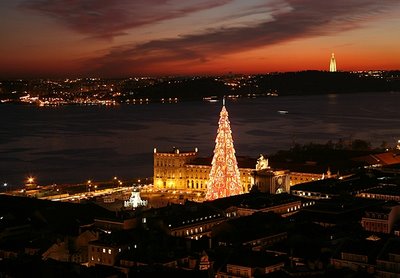 Pôr-do-Sol natalício Foto@SAPO/Paulo M. Guerrinha
Pôr-do-Sol natalício Foto@SAPO/Paulo M. Guerrinha